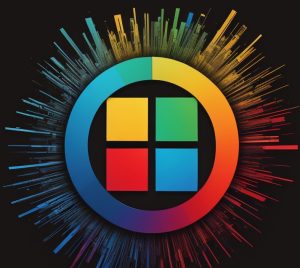
In the future, new models of computers are expected to become systems with artificial intelligence. Several manufacturers are preparing to introduce new products with high technological characteristics that meet the requirements of this promising area in the industry.
The latest news indicates that Microsoft intends to increase the minimum technical requirements for the upcoming Windows 12 operating system, which is due out in 2024. According to Trendforce’s analytical report, the tech giant plans to increase the amount of RAM for optimal performance of its Copilot AI assistant to 16 GB, which will become the new standard for minimum specifications.
The report also states that Microsoft’s updated hardware requirements will determine which computers will be considered as artificial intelligence systems, which may become a kind of standard for computer hardware manufacturers.
This update to the specifications allows us to draw numerous conclusions. In the past, computers had relatively low minimum requirements to run new versions of the operating system. For example, Windows 11 requires only 4 GB of RAM, and Windows 10 requires 1 GB for the 32-bit version or 2 GB for the 64-bit version. However, the new specifications indicate that in the future, Windows 12 may require significantly more resources for optimal performance, including a minimum of 16 GB of RAM. This will certainly increase the cost of Windows 12 devices, and the question will be whether users will be able to afford the additional costs or will remain on the previous version of Windows.
Based on current industry trends, it is likely that consumers prefer to purchase new Windows 12 devices rather than upgrade their existing ones. It seems that older models will probably not be compatible with the RAM requirements. The Trendforce report indicates that this new standard may force computer manufacturers to make 16 GB of RAM the new norm for entry-level products to meet the requirements of the new operating system and AI PC concept.
But as practice shows, people are not always ready to spend extra money on new hardware. For example, many people still use WindowsXP because they are satisfied with the functionality that is available. Of course, newer versions of Windows are also in trend.
And this suggests that Microsoft may have to go the parallel route of developing two systems with and without AI, or provide a function to disable AI so that the “old hardware” can be used with the new operating system. Or simply continue to support Windows11, which is still very relevant at the moment and does not require such powerful hardware.
In recent weeks, several manufacturers, including Intel, AMD, and Qualcomm, have announced the release of new system-on-chip (SoC) devices that will be used in future AI PCs. These components use the “TOPS” measurement unit, which indicates the ability of chips to perform trillions of operations per second. According to Trendforce, Microsoft has set the standard for Windows 12 at 40 TOPS.
For a more detailed view, current Intel Meteor Lake processors operate at 34 TOPS, making them less suitable for use in AI computers. However, future Lunar Lake processors are expected to be specifically designed for AI PCs. The new AMD Zen 4 APUs have a 39 TOPS rating, but it is assumed that the Strix Point Zen 5 APUs will be compatible with a higher rating. Now, the Qualcomm Snapdragon X Elite chip is pushing the envelope, offering an impressive 45 TOPS rating. As you can see, these processors are a little short of the requirements of Windows 12 at this stage, and their prices are low. Although technology is unstoppable and will gradually replace everything old. I think over time, when these standards become commonplace, prices will be lower.
To summarize, many companies have already taken their positions in the field of artificial intelligence (AI). And as Windows software is considered a key and often indispensable element for computers, its contribution is becoming critical to the industry’s functioning and will define the bulk of the AI computer ecosystem in the future. Time will tell whether this will be immediately accepted by consumers positively or not. Although, as mentioned above, technology is unstoppable and we will come to new standards anyway.

